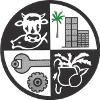Businesses in Papua New Guinea want to be able to operate seamlessly in remote locations, and take advantage of the revolution in mobile services, says Pronto Software’s Steve Hillyard. Business Advantage PNG speaks with him about how PNG has become the software company’s second largest market.
Business Advantage PNG: Pronto Software has established a strong presence as a business management software provider in PNG for more than two decades now. How has the company grown in the country over the years?
Steve Hillyard: We have been doing business in PNG for 23 years now and the country has become Pronto’s second largest market after Australia. I have been working in the country for 12 of those years.
We’ve had more than 20 of our employees working with various clients in PNG over the past year and we cross a number of business sectors (with our software). We work with a lot of businesses in the retail, supply chain, government and mining services sectors.
BAPNG: From a business perspective, what changes have you noted in PNG since you first started with Pronto in the country?
SH: Certainly the country’s business ties with Asia have grown over this time. Like most places, business comes in waves, and in PNG we find it is usually influenced by business trends in Australia and internationally.
From a technology point of view one area that has continually improved in PNG is communication. Businesses in PNG aren’t afraid to embrace new technologies and the local employees are becoming more IT savvy and more knowledgeable. They want a system to be user friendly and easy to work with.
BAPNG: What are currently the most common demands from Pronto’s clients in PNG?
SH: A big push from our clients is for more mobility from the business management solutions we provide. They want more mobile software and much of this has come off the back of the widespread uptake of mobile phones in the country.
With the increase in smart phone use in PNG people now have a better understanding of how the mobility of devices like these can benefit businesses. As companies employ more staff mobility is something they require more of. It is no different from the type of pressures and demands that exist for businesses in Australia really.
With increased mobility it has also raised a number of security issues that PNG businesses must be aware of. This is generally around the security of their data.
BAPNG: What are the main challenges Pronto faces in PNG and what strategies does the company have in place to overcome these challenges?
SH: Working with clients which operate sites in remote locations is always a difficulty we face. When we can effectively connect their remote sites with the rest of their sites it will be a good day for PNG.
We have focused on enabling our clients in remote locations to operate on their own when the link to the main server has been cut. Our clients are still able to conduct business and when the link returns they can update from the main server.
Apart from that, our system proves very effective for the type of businesses that operate in PNG. Pronto Xi takes up a reasonably small amount of bandwidth which means there isn’t as much pressure on the type of communications these businesses require.
BAPNG: From your experiences in PNG, what have been the major areas of development you have observed in the country?
SH: There have been a lot of infrastructure improvements made around the country. And as I mentioned, communication has also improved a lot. These changes have definitely improved the standard of living in the country and also helped PNG become a more modern place from a business perspective.
This article was kindly provided by www.businessadvantagepng.com

